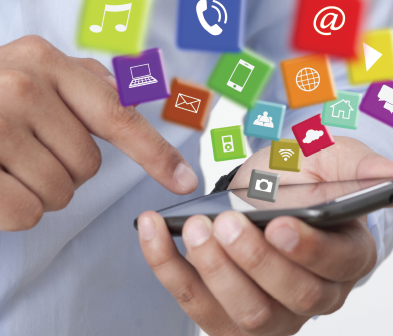
goldyg / shutterstock.com
CHICAGO—Suleman Bhana, MD, a rheumatologist at New York-based Crystal Run Healthcare, calls himself a “technology nerd,” but judging by his review of tech tools at the 2018 ACR/ARHP Annual Meeting, you don’t have to geek out to embrace technology in your rheumatology practice. You just have to like simplicity and saving money.
“We have a tool with us at all times, something that’s always in our pocket and rapidly advancing that we could use for patients,” he said. “And that is our smartphone.”
The smartphone, Dr. Bhana said—he held up his iPhone X as proof of his tech-nerd qualifications—is helping harness patient-derived data for research studies and is interfacing with the modern devices (e.g., ultrasound devices that can plug into a phone) gradually replacing older, bigger and more expensive technology.
Technology in medicine should be cost effective, not interrupt workflow or patient care, be easy to use and provide a real impact on patient outcomes, he said. “Ideally, the best technology should incorporate all of these principles.”
Hardware Tools
Dr. Bhana noted several hardware tools rheumatologists might find particularly helpful, including:
- The OlloClip Macro Pro Lens, which clips to a phone’s camera to provide up to 21x magnification. Rheumatologists can use it to perform a nailfold capillaroscopy that reliably distinguishes between primary and secondary Raynaud’s phenomenon. “The advantage of using this on your phone is that you can still do whatever you are normally doing on your phone anyway, so you can still take pictures, take video, utilize your digital zoom,” said Dr. Bhana, who reported no disclosures about any of the devices he mentioned. The device (now available only for the iPhone) costs $64, compared with a DermLite device that costs $495 and does not magnify as strongly.
- The FLIR ONE Thermal Camera for smartphones, which attaches to a smartphone or tablet and combines a thermal camera and a standard camera to make a dual image, detecting temperature differences as small as 0.1ºF. It is compatible with iOS and Android, and costs $299 or $399 (depending on the model), compared with a traditional thermal imaging system that can cost thousands.
- The Gosky Universal Cell Phone Adapter Mount, which lets you attach your phone to your microscope for image capture. “Your smartphone becomes the image-capture equipment, and you can still capture video and utilize the phone’s digital zoom as well,” Dr. Bhana said. You can also wirelessly stream images to others to obtain their opinions. The mount costs $24.99, compared with more than $1,000 for a microscope camera.
‘Your smartphone becomes the image-capture equipment.’ —Dr. Bhana
Software Tools
In the software realm, he suggested these smartphone apps:

